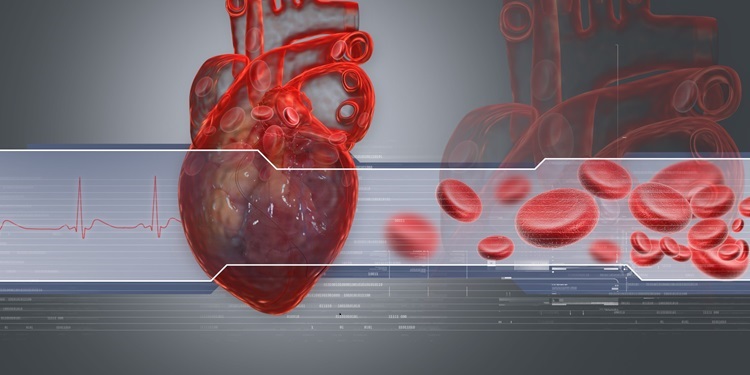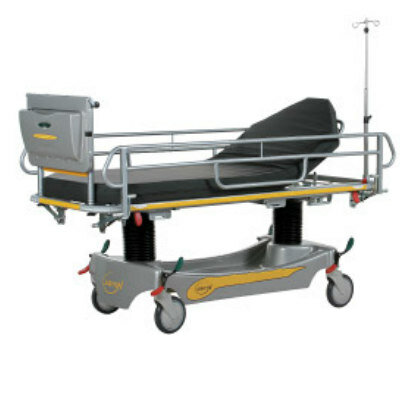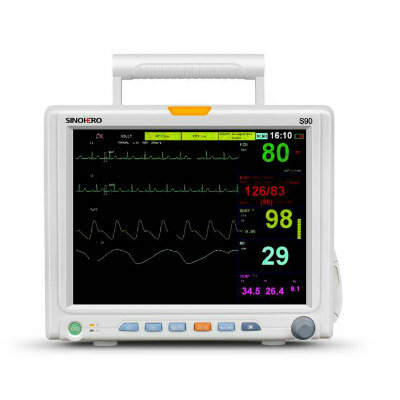New Method Accurately Estimates Cardiovascular State to Inform Blood Pressure Management During Surgery
|
By HospiMedica International staff writers Posted on 30 Jul 2024 |

In cases where patients in intensive care or undergoing major surgeries experience extreme blood pressure fluctuations, it can lead to significant organ dysfunction. For healthcare providers, merely recognizing that blood pressure is abnormal is insufficient. To administer the appropriate medication effectively, it is crucial to understand the underlying reasons for the change in blood pressure. Now, a new study introduces a mathematical framework that accurately derives that vital information in real-time.
Developed by researchers at the Picower Institute at MIT (Cambridge, MA, USA), this new mathematical framework can proportionately estimate the two main factors affecting blood pressure: cardiac output (the rate at which the heart pumps blood) and systemic vascular resistance (the resistance within the arteries to blood flow). The researchers tested this new approach on data previously gathered from animal models, demonstrating that their non-invasively obtained estimates from peripheral arterial blood pressure readings aligned precisely with those acquired using an invasive flow probe on the aorta.
Furthermore, these estimates accurately reflected changes brought about by various drugs used by clinicians to normalize blood pressure. According to findings published in IEEE Transactions on Biomedical Engineering, the derived values for resistance and cardiac output offer essential data that can be immediately utilized to make informed decisions in managing hemodynamics. Pending additional validation and regulatory approval, this technique could be used during critical medical procedures such as heart surgeries, liver transplants, and care in intensive units, enhancing treatment for conditions that impact cardiovascular function or blood volume.
“Any patient who is having cardiac surgery could need this,” said study senior author Emery N. Brown from The Picower Institute at MIT. “So might any patient undergoing a more normal surgery but who might have a compromised cardiovascular system such as ischemic heart disease. You can’t have the blood pressure being all over the place.”
Related Links:
Picower Institute at MIT
Latest Critical Care News
- Novel Cannula Delivery System Enables Targeted Delivery of Imaging Agents and Drugs
- Ingestible Smart Capsule for Chemical Sensing in the Gut Moves Closer to Market
- Novel Intrabronchial Method Delivers Cell Therapies in Critically Ill Patients on External Lung Support
- Generative AI Technology Detects Heart Disease Earlier Than Conventional Methods
- Wearable Technology Predicts Cardiovascular Risk by Continuously Monitoring Heart Rate Recovery
- Wearable Health Monitoring Device Measures Gases Emitted from and Absorbed by Skin
- Groundbreaking Technology Rapidly Detects Airborne Influenza Viruses
- Handheld Device Could Transform Heart Disease Screening
- Flexible Semi-Autonomous Robot Could Deliver Medicine Inside Body

- Neurorestorative Treatment Strategies Hold Promise for Most Severe Forms of Epilepsy
- Gene Discovery Could Help Grow New Heart Arteries
- Study Discovers Invisible Transmission of Common Hospital-Associated Infection
- Non-Invasive Neuro-Ophthalmology Techniques Could Detect Brain Tumors Earlier
- Mass Manufactured Nanoparticles to Deliver Cancer Drugs Directly to Tumors
- World’s Smallest Pacemaker Fits Inside Syringe Tip

- AI-Powered, Internet-Connected Medical Devices to Revolutionize Healthcare, Finds Study
Channels
Critical Care
view channel
Ingestible Smart Capsule for Chemical Sensing in the Gut Moves Closer to Market
Intestinal gases are associated with several health conditions, including colon cancer, irritable bowel syndrome, and inflammatory bowel disease, and they have the potential to serve as crucial biomarkers... Read moreNovel Cannula Delivery System Enables Targeted Delivery of Imaging Agents and Drugs
Multiphoton microscopy has become an invaluable tool in neuroscience, allowing researchers to observe brain activity in real time with high-resolution imaging. A crucial aspect of many multiphoton microscopy... Read more
Novel Intrabronchial Method Delivers Cell Therapies in Critically Ill Patients on External Lung Support
Until now, administering cell therapies to patients on extracorporeal membrane oxygenation (ECMO)—a life-support system typically used for severe lung failure—has been nearly impossible.... Read morePatient Care
view channel
Portable Biosensor Platform to Reduce Hospital-Acquired Infections
Approximately 4 million patients in the European Union acquire healthcare-associated infections (HAIs) or nosocomial infections each year, with around 37,000 deaths directly resulting from these infections,... Read moreFirst-Of-Its-Kind Portable Germicidal Light Technology Disinfects High-Touch Clinical Surfaces in Seconds
Reducing healthcare-acquired infections (HAIs) remains a pressing issue within global healthcare systems. In the United States alone, 1.7 million patients contract HAIs annually, leading to approximately... Read more
Surgical Capacity Optimization Solution Helps Hospitals Boost OR Utilization
An innovative solution has the capability to transform surgical capacity utilization by targeting the root cause of surgical block time inefficiencies. Fujitsu Limited’s (Tokyo, Japan) Surgical Capacity... Read more
Game-Changing Innovation in Surgical Instrument Sterilization Significantly Improves OR Throughput
A groundbreaking innovation enables hospitals to significantly improve instrument processing time and throughput in operating rooms (ORs) and sterile processing departments. Turbett Surgical, Inc.... Read moreHealth IT
view channel
Printable Molecule-Selective Nanoparticles Enable Mass Production of Wearable Biosensors
The future of medicine is likely to focus on the personalization of healthcare—understanding exactly what an individual requires and delivering the appropriate combination of nutrients, metabolites, and... Read more
Smartwatches Could Detect Congestive Heart Failure
Diagnosing congestive heart failure (CHF) typically requires expensive and time-consuming imaging techniques like echocardiography, also known as cardiac ultrasound. Previously, detecting CHF by analyzing... Read moreBusiness
view channel
Expanded Collaboration to Transform OR Technology Through AI and Automation
The expansion of an existing collaboration between three leading companies aims to develop artificial intelligence (AI)-driven solutions for smart operating rooms with sophisticated monitoring and automation.... Read more
















